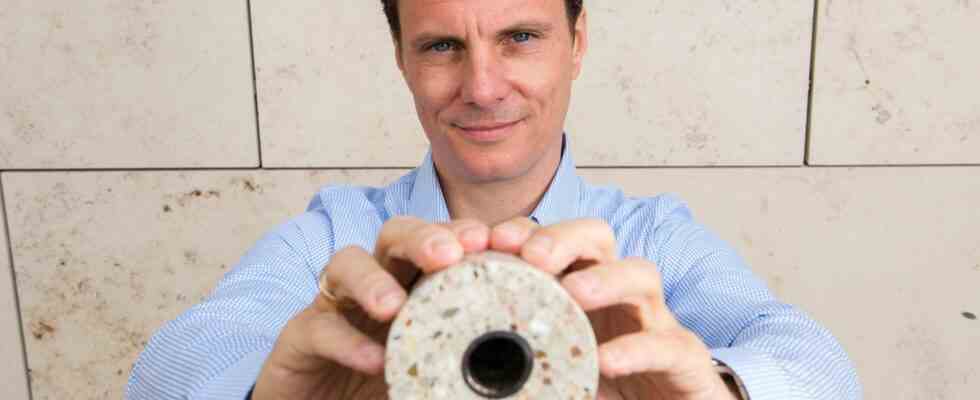podcast
“The Zero Hour”
These clever concrete batteries help factories save energy
EnergyNest boss Christian Thiel sells concrete tubes as energy storage
© Daniel Bockwoldt/ / Picture Alliance
With thermal batteries, industry can reduce its energy consumption. EnergyNest builds systems for this. Managing Director Christian Thiel talks about the purpose and benefits of the technology – and why Germany is lagging behind in its use.
Germany and other countries are rapidly converting their energy supply – and for weeks the focus has been on industry in particular. Can it still produce in Germany without cheap gas from Russia? Thermal batteries can help with the conversion by storing the excess energy from industrial processes – and making it usable with a time delay. A pioneer in this field is EnergyNest, which has been managed by Christian Thiel since 2014. The Norwegian company makes thermal batteries from carbon steel and a special concrete that can be stacked as needed, much like Lego bricks.
“Our storage helps industrial companies to electrify heat,” says Thiel in the podcast “Zero Hour”. Currently, heat is mainly generated by fossil fuels. “We can now help the industrial company to stop these fossil fuel processes, to feed the storage facility with renewable electricity and then to withdraw steam directly,” he explains.
Another application of thermal batteries: “We can feed unused waste heat to our storage facility, park it there until the heat is needed again for another process step and then store it directly there,” says the Rostocker.
“Germany is in a deep slumber”
This technology could be an important element in reducing German CO2 emissions because “25 percent of greenhouse gas emissions in Germany result from industrial process heat,” says the managing director. As the market for thermal storage is booming, EnergyNest is also growing “very massively”, according to the CEO. One challenge for the company, however, is finding enough qualified employees.
The possibilities offered by the technology are not yet really being noticed in Germany, says Thiel: “We can see that the discussion in the European context is slowly shifting. But in Germany, unfortunately, people have not yet woken up here, or are still in a deep slumber.” The manager is therefore trying to make himself heard more in politics. “Process heat is such a huge topic, you can’t not talk about it,” says Thiel. “That’s an absolute no go.”
Listen in the new episode of “Zero Hour” :
- How the components of memory are made
- How Thiel came to lead EnergyNest
- How he tries to recruit new talent
All episodes can be found directly at AudioNow, Apple or Spotify or via Google

